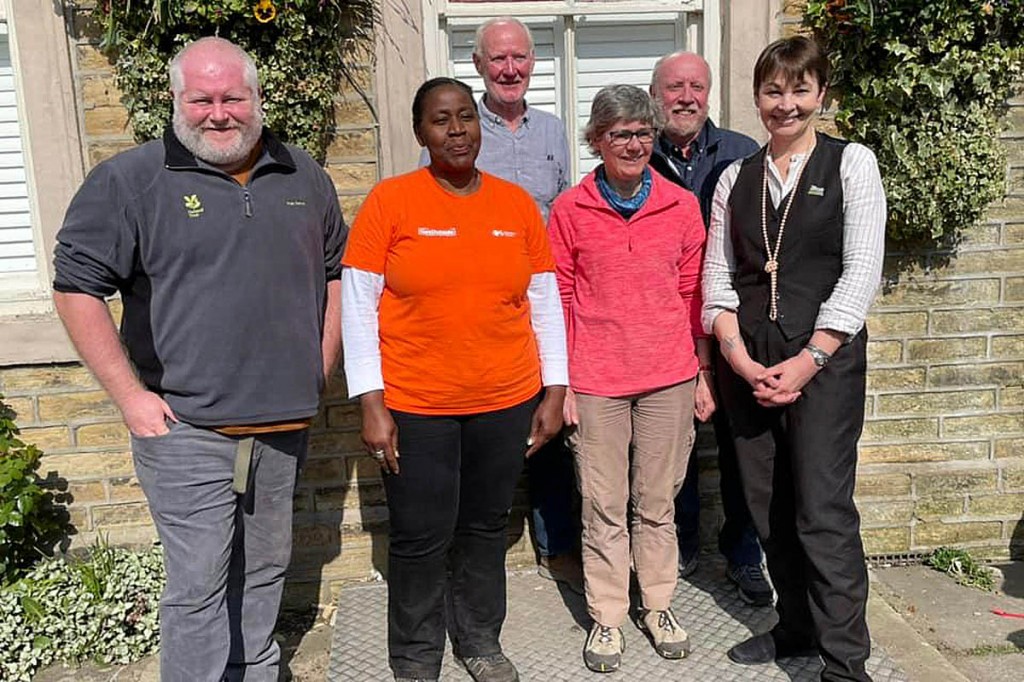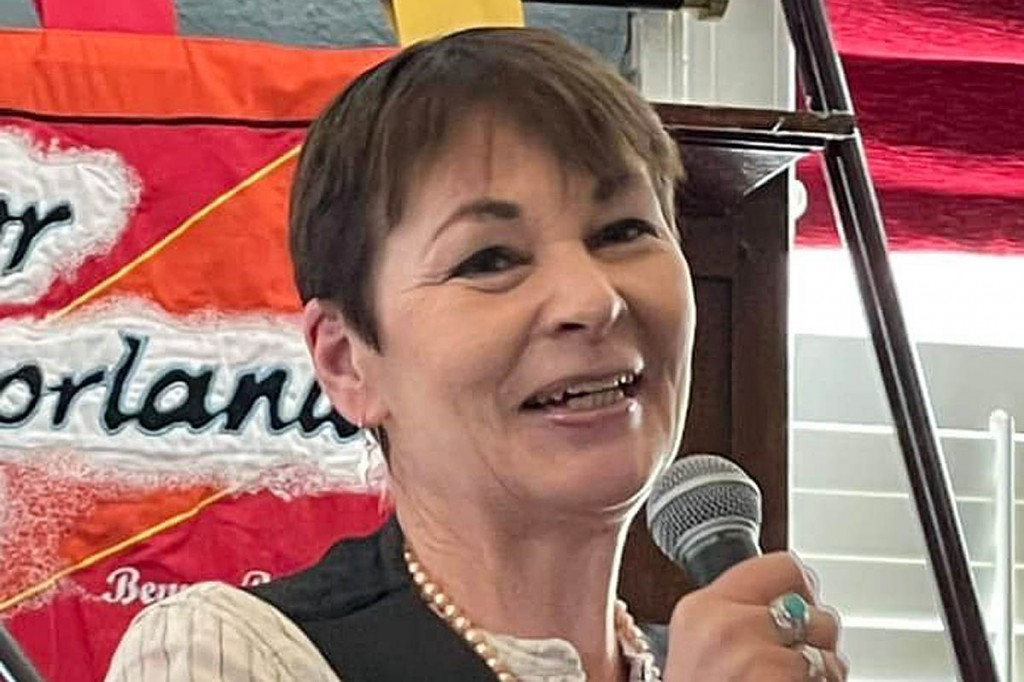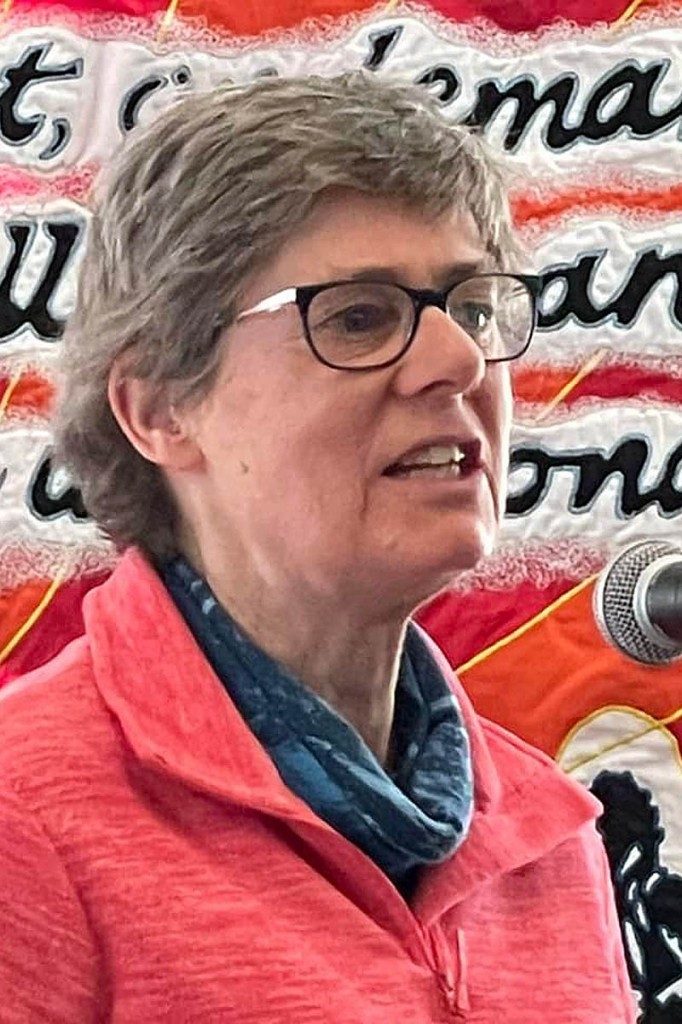England should adopt a Scottish model of access to the countryside, the UK’s only Green MP said.
Caroline Lucas addressed a gathering at the weekend celebrating the 90th anniversary of the Kinder Scout mass trespass.
Kate Ashbrook, general secretary of the Open Spaces Society, called on the government to improves people’s access as part of a ‘natural health service’.
The women were among speakers at the event staged at Hayfield on Saturday. The village was the starting point for the group of walkers, led by Manchester Communist Benny Rothman, who headed up Kinder Scout, the Peak District’s highest hill. The walkers were met by agents of the Duke of Devonshire and, following a confrontation on the slopes of the hill, six were arrested and five jailed for affray.
The incident is seen as pivotal in the fight for greater access to Britain’s mountains, hills and countryside.
Speaking at the event at the Royal Hotel Dr Lucas said our green and pleasant land should no longer be regarded as a luxury for a privileged few to enjoy. She said the country should follow the lead given by Scotland, Norway and Sweden, where the right to roam had long existed as a common right.
She said she had tabled an early day motion in parliament celebrating the 1932 Kinder trespassers and calling on the government to extend the provisions of the Countryside and Rights of Way Act to include rivers, woodland, grasslands and the green belt.
“The UK is one of the most nature-depleted countries on earth,” she said. “I genuinely believe that by extending the right of access to the countryside, we’d see a renewed effort to protect and restore nature and biodiversity. It is high time for a rethink of our approach; to reclaim the earth which was taken from us.”
Kate Ashbrook, a seasoned access-rights campaigner, told a packed audience at the hotel: “We need a new movement for access, and we need everyone to work together.
“Today is the opportunity for us all to get together to develop and implement our next campaign for access – a much broader movement than ever before – to provide a true legacy to Kinder.”

Speakers at the gathering: from left, Craig Best, Yvonne Witter, Dave Toft, Kate Ashbrook, Roly Smith and Caroline Lucas. Photo: Claire Ball-Smith
She condemned the government for ditching of the promised ‘quantum shift’ review on access, which had been initiated by the Treasury and which would have given the opportunity to argue the economic, and health, benefits of access.
“This is not just from increased spending by visitors,” she said, “but also by savings through improving people’s health and wellbeing – the natural health service.”
Stuart Maconie, BBC 6 Music broadcaster, author and president of the Ramblers, emphasised one of the legacies of the trespass had been to illustrate the effectiveness of taking direct action where there was a justifiable cause. “No one ever got anywhere by going cap in hand,” he said.
The meeting, which was chaired by Dave Toft of the Hayfield Kinder Trespass Group, started with a poem about Our hills by Hayfield Primary School pupil Gracie.
Other speakers included Craig Best, general manager for the Peak District of the National Trust, which has owned and managed Kinder Scout for 40 years, and who reassured the audience that Kinder was ‘For everyone, for ever,’ and Yvonne Witter, leader of Mosaic, the collective representing black and minority ethnic communities and a member of the Peak District National Park Authority.
Keith Warrender also launched his comprehensive new book on the trespass, Forbidden Kinder, and many relatives of the 1932 trespassers featured were present.
Fifteen other outdoor and conservation bodies had stands in a specially erected marquee next to the Royal. In addition, the Loughborough University School of Architecture staged an exhibition of prospective designs for a new Trespass Centre in Hayfield in the Village Hall, where the village primary school also put on displays of children’s poetry.
Later on the village green, Caroline Lucas, Kate Ashbrook, Craig Best, historian Julian Batsleer and writer Roly Smith took part in an informal question-and-answer session, and local band Recover played at the Royal Hotel.

